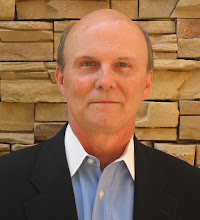If you did not write or help the client develop the bid requirements, your chances of winning are less than 20%. Why? Most bids, either directly or indirectly are biased toward another vendor's products or services. Oftentimes, the incumbent plays a significant role in developing the bid specifications, or it is a bias on the part of the client's internal team toward a particular solution that influences the bid specifications and the final outcome.
So, how do you increase your odds of winning when you are in a loss position before you even start to formulate a proposal response? The most effective way to improve your win rates in bid situations is to change the ground rules and sell beyond the bid process.
First, you should know that the vast majority of RFP's are shopping lists that seldom track with the client's true business requirements. In order for you to increase your chances of winning, it's important to meet with the decision-makers and bid team separately (outside of the bidder's conference) to determine the true underlying business requirements, priorities and to identify any potential biases. This will enable you to tailor your bid response to the client's specific business needs, once a determination has been made to move forward with the response.
Next, understand the motivation behind the bid. In the public sector a formal bid may be a mandatory requirement. Many government entities, for example, require that a minimum of three bids be sourced and evaluated prior to vendor selection. However, in the private sector RFP's are generally driven by a level of dissatisfaction with the current vendor, or someone's desire to assess the broader market for enhanced capabilities or extended services to address the company's future business needs. Regardless, it's important for you to know what (and who) is driving the decision to shop the market before attempting to develop a bid response.
Once you have determined the client's business requirements, hot buttons, decision criteria and biases, you can then decide how (or if) you want to proceed. Power Base Selling, written by Jim Holden, is a great resource for salespeople to help them transform their approach to selling, particularly in highly competitive bid situations. Before moving forward with a bid or proposal response, the Power Base Selling methodology requires that you answer these critical questions:
- Do I have an opportunity?
- Should I compete?
- Can I win?
If the answer to all three questions is "yes" and the decision is to move forward, then get creative by developing a solution that uniquely positions you as the front runner when it is time for the client to make a decision. Think about incorporating other elements not covered in the scope of the bid - i.e. additional services, value bundles, upgrades, etc. into your response as another way to differentiate your bid response and reinforce that you did your homework to understand the client's specific business needs. Create an "Other Considerations" addendum to your proposal to highlight these enhanced capabilities and/or future requirements you identified in meetings with the decision-makers and bid team.
Throughout the bid and selection process it is important for you to stay in touch with the client decision-makers and bid team so they are fully briefed on the critical attributes of your solution that distinguish you from the competition. Staying in touch with the decision-makers and the bid team will also help you keep abreast of any changes to the bid requirements, selection criteria or decision parameters, while strengthening your key business relationships within the client's hierarchy.
Selling beyond the bid process is all about finding creative ways to help you favorably influence the outcome of the decision and improve your odds of winning the business. So, don't allow the bid process itself to hinder your ability to deliver a solution that will ultimately exceed the client's expectations and differentiate you from the competition.
Good luck and good selling!
COPYRIGHT © 2010 John Carroll
